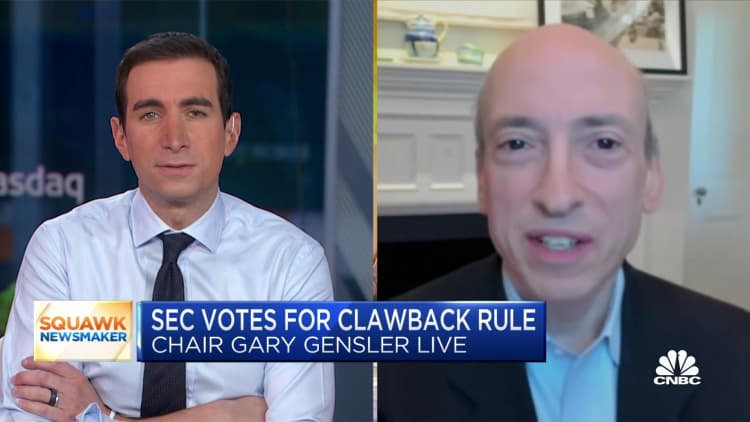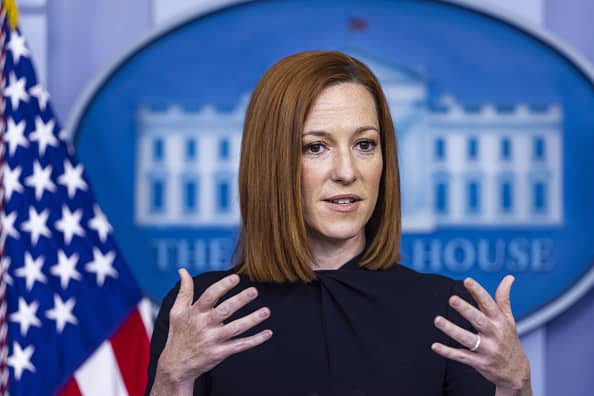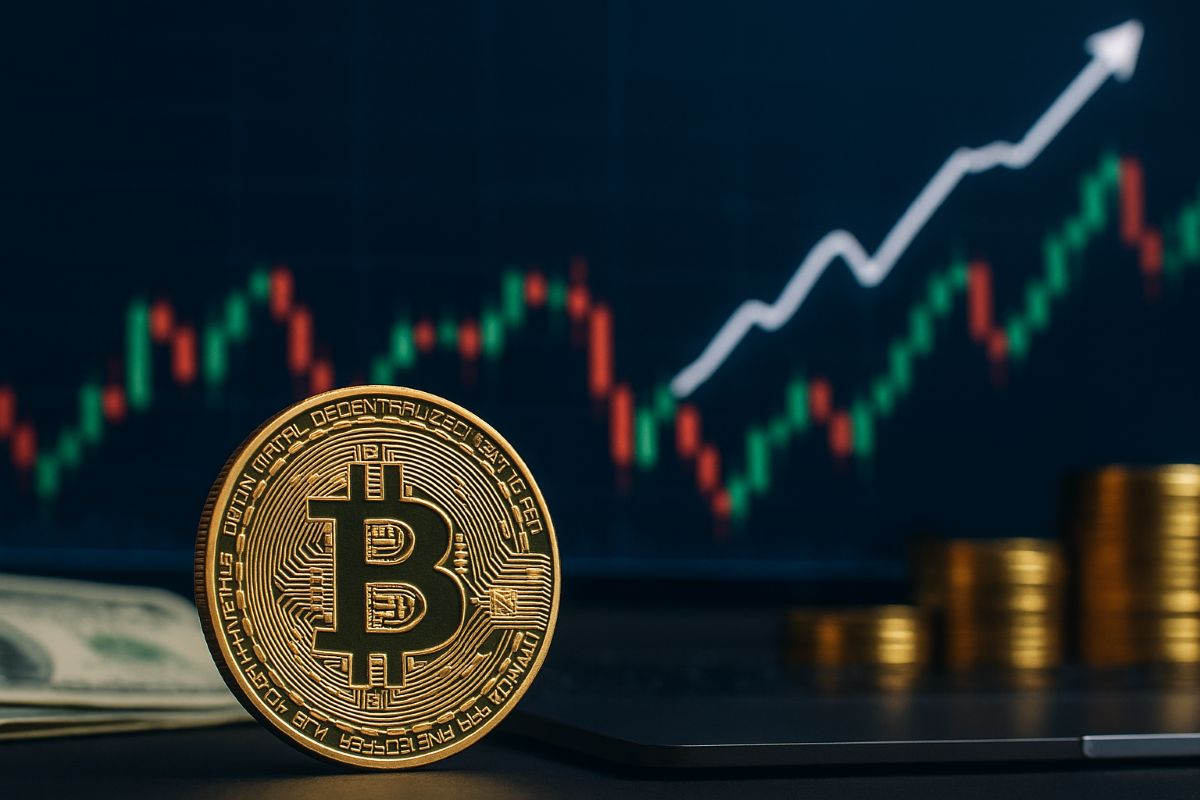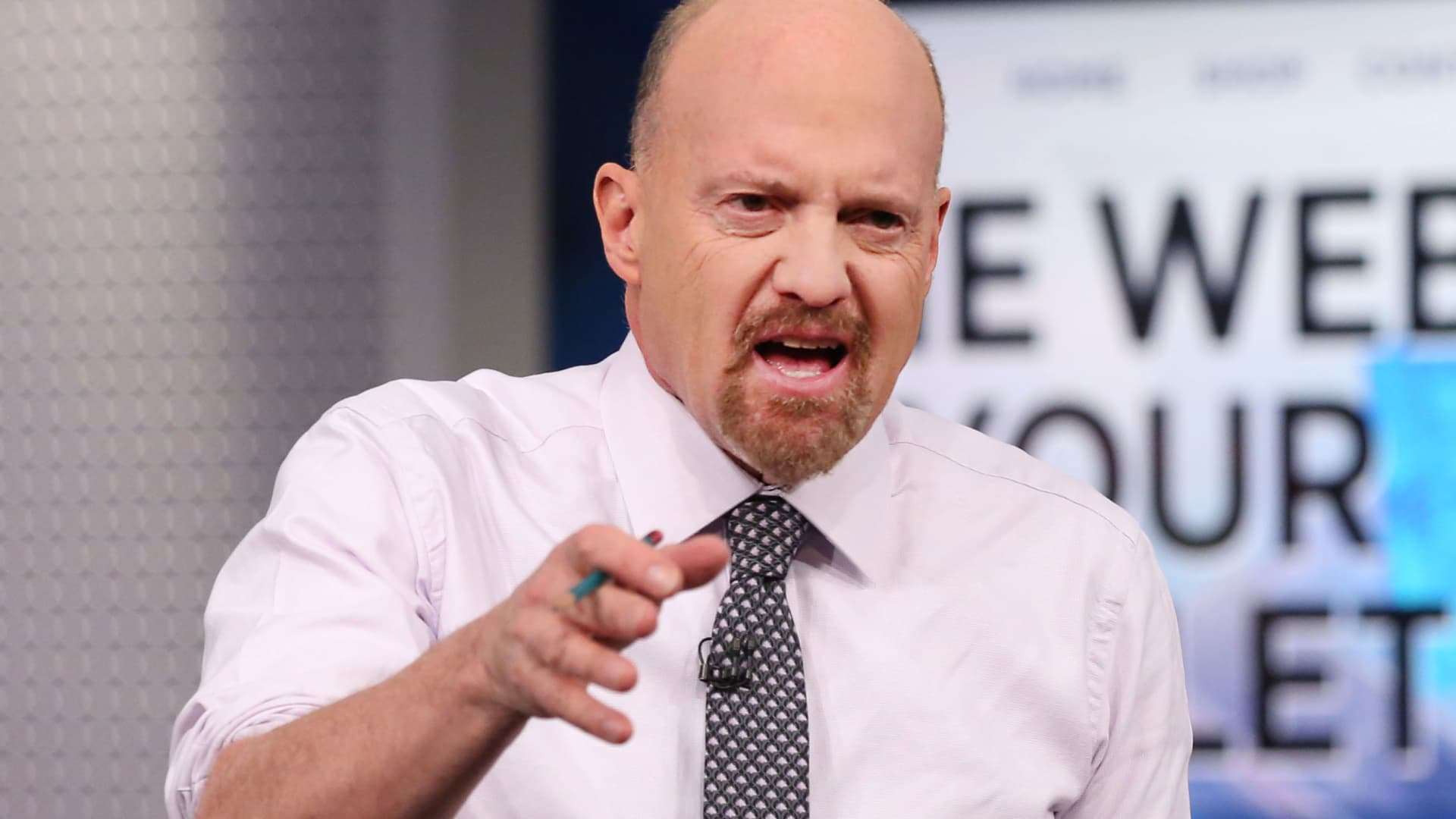SEC Chair Gary Gensler defends controversial clawback rule, saying it won't stop companies from going public
U.S. Securities and Exchange Commission Chair Gary Gensler defended the agency's implementation of the clawback rule as a straightforward directive by Congress.


A new Securities and Exchange Commission rule that would allow the agency to reclaim bonuses from certain executives should not discourage companies from going public, SEC Chair Gary Gensler said Friday.
The "clawback rule" broadens SEC regulators' authority to recover incentive-based compensation to current and former executives of public companies that was awarded based on errors in their financial statements. Gensler told CNBC's "Squawk Box" that the agency is following through on a rule mandated by Congress.
"This was a straightforward thing that Congress said," Gensler said. "If you've got the wrong faulty financials and somebody's getting paid on those faulty financials, then they ought not keep the money. I think it's pretty straightforward."
U.S. Securities and Exchange Commission (SEC) Chair Gary Gensler testifies before a Senate Banking, Housing, and Urban Affairs Committee oversight hearing on the SEC on Capitol Hill in Washington, U.S., September 14, 2021.
Evelyn Hockstein | Reuters
Congress mandated the clawback back rule after the 2007 financial crisis, but it was abandoned in 2015. The SEC under Gensler revived it last year as part of a larger effort to rein in executives for corporate wrongdoing.
Gensler denied claims that too much of the SEC's rulemaking agenda is focused on regulatory efforts that will stall in Congress. He added that Congress mandated most of the agency's agenda over a decade ago.
"We have a three-part mission. It's about investor protection. It's about capital formation. It's about the markets," Gensler told CNBC. "Eight of our parts of our regulatory agenda [were] mandated by Congress 12 years ago in that Dodd Frank Act. We actually had another couple of mandates as well. So we had [Congress mandate] nine or 10 of our agenda, but our agenda is about investor protection and the other parts of our mission."

 JaneWalter
JaneWalter 
































